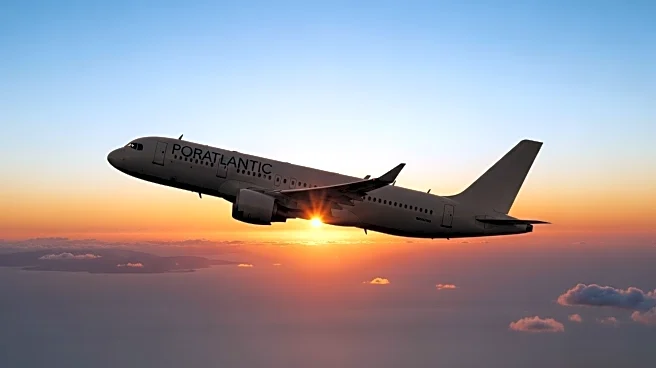What's Happening?
Delta Air Lines has announced the launch of a new seasonal nonstop service from New York's JFK Airport to Porto, Portugal, starting in May 2026. This route is part of Delta's broader expansion plan, which includes seven new European destinations for the summer season. The flights will be operated using a Boeing 767-300, offering Delta One business class, premium economy, and standard main cabin seats. The decision to add Porto to Delta's network comes amid a significant increase in international tourism to the region, with Porto's market relevance more than doubling since 2019 and expected to grow over 20% this year alone.
Why It's Important?
The introduction of this new route by Delta Air Lines highlights the growing demand for travel to Porto, Portugal, and reflects the city's rising status as a key European destination. This expansion is likely to boost tourism and economic activity in the Porto region, providing more opportunities for American travelers to explore Europe. Additionally, Delta's strategic move to increase transatlantic flights aligns with the airline's efforts to enhance its global network and offer more travel options to its customers. The increased connectivity may also stimulate competition among airlines serving similar routes, potentially benefiting consumers through improved services and competitive pricing.
What's Next?
With the new route set to commence in May 2026, Delta Air Lines will likely focus on marketing and operational preparations to ensure a successful launch. The airline may also monitor passenger demand and adjust capacity or frequency as needed. Local tourism and business stakeholders in Porto are expected to capitalize on the increased influx of American tourists, potentially leading to further investments in infrastructure and services. Other airlines may respond by enhancing their own offerings to Porto or similar destinations, contributing to a dynamic and competitive transatlantic travel market.
Beyond the Headlines
The expansion of Delta's transatlantic service to Porto could have broader implications for the airline industry, including potential shifts in travel patterns and preferences among American tourists. As Porto gains prominence as a travel destination, there may be increased interest in cultural and historical exchanges between the U.S. and Portugal. Additionally, the move underscores the importance of strategic route planning in the airline industry, where decisions are influenced by market trends, economic forecasts, and consumer behavior.











